Related Research Articles

In computational complexity theory, an interactive proof system is an abstract machine that models computation as the exchange of messages between two parties: a prover and a verifier. The parties interact by exchanging messages in order to ascertain whether a given string belongs to a language or not. The prover possesses unlimited computational resources but cannot be trusted, while the verifier has bounded computation power but is assumed to be always honest. Messages are sent between the verifier and prover until the verifier has an answer to the problem and has "convinced" itself that it is correct.

Manuel Blum is a Venezuelan-American computer scientist who received the Turing Award in 1995 "In recognition of his contributions to the foundations of computational complexity theory and its application to cryptography and program checking".
A commitment scheme is a cryptographic primitive that allows one to commit to a chosen value while keeping it hidden to others, with the ability to reveal the committed value later. Commitment schemes are designed so that a party cannot change the value or statement after they have committed to it: that is, commitment schemes are binding. Commitment schemes have important applications in a number of cryptographic protocols including secure coin flipping, zero-knowledge proofs, and secure computation.
In cryptography, a zero-knowledge proof or zero-knowledge protocol is a method by which one party can prove to another party that a given statement is true while the prover avoids conveying any additional information apart from the fact that the statement is indeed true. The essence of zero-knowledge proofs is that it is trivial to prove that one possesses knowledge of certain information by simply revealing it; the challenge is to prove such possession without revealing the information itself or any additional information.
The Gödel Prize is an annual prize for outstanding papers in the area of theoretical computer science, given jointly by the European Association for Theoretical Computer Science (EATCS) and the Association for Computing Machinery Special Interest Group on Algorithms and Computational Theory. The award is named in honor of Kurt Gödel. Gödel's connection to theoretical computer science is that he was the first to mention the "P versus NP" question, in a 1956 letter to John von Neumann in which Gödel asked whether a certain NP-complete problem could be solved in quadratic or linear time.
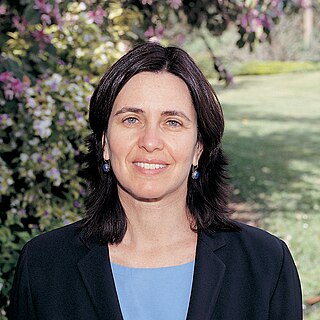
Shafrira Goldwasser is an Israeli-American computer scientist and winner of the Turing Award in 2012. She is the RSA Professor of Electrical Engineering and Computer Science at Massachusetts Institute of Technology; a professor of mathematical sciences at the Weizmann Institute of Science, Israel; the director of the Simons Institute for the Theory of Computing at the University of California, Berkeley; and co-founder and chief scientist of Duality Technologies.
Johan Torkel Håstad is a Swedish theoretical computer scientist most known for his work on computational complexity theory. He was the recipient of the Gödel Prize in 1994 and 2011 and the ACM Doctoral Dissertation Award in 1986, among other prizes. He has been a professor in theoretical computer science at KTH Royal Institute of Technology in Stockholm, Sweden since 1988, becoming a full professor in 1992. He is a member of the Royal Swedish Academy of Sciences since 2001.
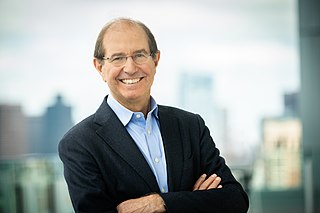
Silvio Micali is an Italian computer scientist, professor at the Massachusetts Institute of Technology and the founder of Algorand, a proof-of-stake blockchain cryptocurrency protocol. Micali's research at the MIT Computer Science and Artificial Intelligence Laboratory centers on cryptography and information security.
In cryptography, a verifiable random function (VRF) is a public-key pseudorandom function that provides proofs that its outputs were calculated correctly. The owner of the secret key can compute the function value as well as an associated proof for any input value. Everyone else, using the proof and the associated public key, can check that this value was indeed calculated correctly, yet this information cannot be used to find the secret key.
In computational complexity theory, the PCP theorem states that every decision problem in the NP complexity class has probabilistically checkable proofs of constant query complexity and logarithmic randomness complexity.
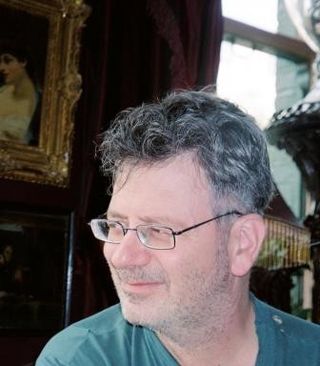
Oded Goldreich is a professor of Computer Science at the Faculty of Mathematics and Computer Science of Weizmann Institute of Science, Israel. His research interests lie within the theory of computation and are, specifically, the interplay of randomness and computation, the foundations of cryptography, and computational complexity theory. He won the Knuth Prize in 2017 and was selected in 2021 to receive the Israel Prize in mathematics.

László "Laci" Babai is a Hungarian professor of computer science and mathematics at the University of Chicago. His research focuses on computational complexity theory, algorithms, combinatorics, and finite groups, with an emphasis on the interactions between these fields.
Aleksandr Aleksandrovich Razborov, sometimes known as Sasha Razborov, is a Soviet and Russian mathematician and computational theorist. He is Andrew McLeish Distinguished Service Professor at the University of Chicago.

Avi Wigderson is an Israeli mathematician and computer scientist. He is the Herbert H. Maass Professor in the school of mathematics at the Institute for Advanced Study in Princeton, New Jersey, United States of America. His research interests include complexity theory, parallel algorithms, graph theory, cryptography, distributed computing, and neural networks. Wigderson received the Abel Prize in 2021 for his work in theoretical computer science.

Michael George Luby is a mathematician and computer scientist, CEO of BitRipple, Senior Research Scientist at the International Computer Science Institute (ICSI), former VP Technology at Qualcomm, co-founder and former Chief Technology Officer of Digital Fountain. In coding theory he is known for leading the invention of the Tornado codes and the LT codes. In cryptography he is known for his contributions showing that any one-way function can be used as the basis for private cryptography, and for his analysis, in collaboration with Charles Rackoff, of the Feistel cipher construction. His distributed algorithm to find a maximal independent set in a computer network has also been influential.
Richard Jay Lipton is an American computer scientist who is Associate Dean of Research, Professor, and the Frederick G. Storey Chair in Computing in the College of Computing at the Georgia Institute of Technology. He has worked in computer science theory, cryptography, and DNA computing.

Salil Vadhan is an American computer scientist. He is Vicky Joseph Professor of Computer Science and Applied Mathematics at Harvard University. After completing his undergraduate degree in Mathematics and Computer Science at Harvard in 1995, he obtained his PhD in Applied Mathematics from Massachusetts Institute of Technology in 1999, where his advisor was Shafi Goldwasser. His research centers around the interface between computational complexity theory and cryptography. He focuses on the topics of pseudorandomness and zero-knowledge proofs. His work on the zig-zag product, with Omer Reingold and Avi Wigderson, was awarded the 2009 Gödel Prize.
Lance Jeremy Fortnow is a computer scientist known for major results in computational complexity and interactive proof systems. He is currently Dean of the College of Computing at the Illinois Institute of Technology.
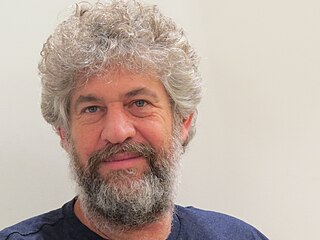
Noam Nisan is an Israeli computer scientist, a professor of computer science at the Hebrew University of Jerusalem. He is known for his research in computational complexity theory and algorithmic game theory.
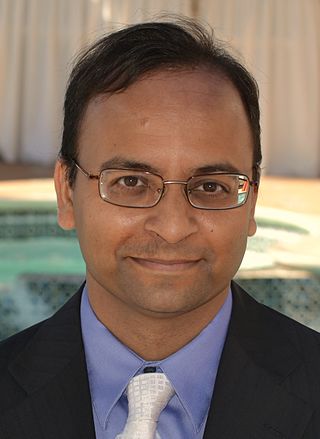
Amit Sahai is an American computer scientist. He is a professor of computer science at UCLA and the director of the Center for Encrypted Functionalities.
References
- ↑ Charles Rackoff at the Mathematics Genealogy Project
- ↑ "Gödel Prize". www.sigact.org. Archived from the original on 2010-07-16. Retrieved 2010-12-14.
- ↑ Computer Science: Prof. Rackoff
- ↑ "Professor criticizes Montreal massacre memorials". Canadian Broadcasting Corporation. 7 December 2000. Archived from the original on 29 August 2009.